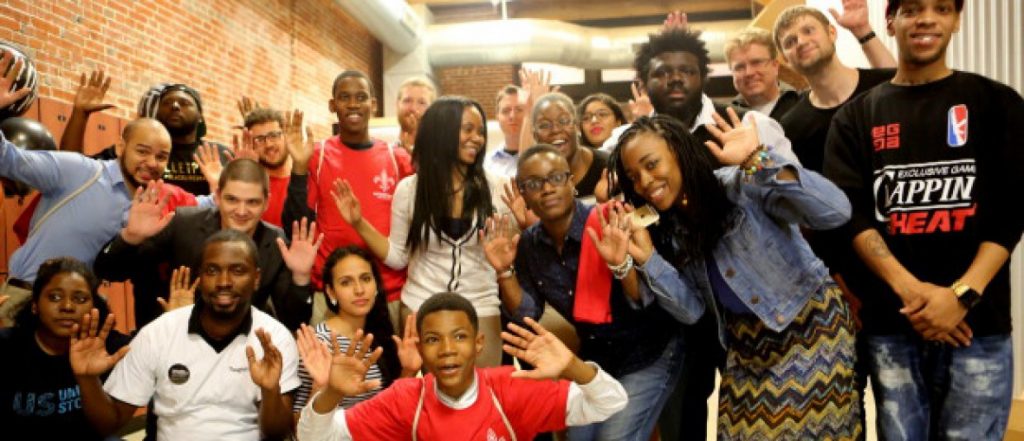FERGUSON CODING WORKSHOP TEACHES TECH, ACTIVISM, AND COMMUNITY
- JESSICA MCKENZIE
- August 12, 2015
- 7:49 pm
“We’re creating tech-savvy, conscious leaders, who so happen to be radical black and brown youth.” —Abby Bobé

Twitter. Facebook. SEO. The so-called digital divide. Everything covered during the six-week, 100-hour Roy Clay Sr. Workshop is an opportunity for political discussion. Run by the St. Louis-area activist collective Hands Up United, the workshop teaches area residents between the ages 16 and 30 how to code, and they put their new skills to use by building websites for black-owned area businesses and nonprofits.
There are plenty of programs that have set their sights on diversifying the technology industry—Girls Who Code, Black Girls Code, Telegraph Academy—but the Tech Impact initiative is arguably even more ambitious. Alongside instruction on HTML and JavaScript, participants in the Roy Clay Sr. workshop—named for a Ferguson-area man who became a prominent black entrepreneur and engineer in Silicon Valley—receive a political education.
“We’re creating tech-savvy, conscious leaders, who so happen to be radical black and brown youth,” Idalin “Abby” Bobé, a volunteer with the initiative, tells Civicist.
Tara Thompson, a director at Hands Up United and point person on the Tech Impact initiative, concurs. “Changing the ratio is obviously important,” she tells Civicist, referring to programs that focus on diversifying the tech industry, “but if you’re changing the ratio solely to change the numbers and not to to have a greater impact, I wonder how effective that is.”
The workshop meets three times a week: from 5pm – 9pm on Tuesdays and Thursdays, and on Saturdays from 10am – 6pm. But Bobé says that sometimes participants will hang around for a couple extra hours on Saturdays. Instruction is provided by mentors, mostly from the technology sector in St. Louis, who donate their time and energy to the program.
Hands Up United was inspired to start this program last year during Ferguson October, when local activists called for a boycott of major corporations in the area. Unfortunately, it quickly became apparent that many St. Louis area residents were unaware of locally-owned alternatives in their community because they had no web presence. A problem with a relatively simple solution had presented itself, and Hands Up United created a program to tackle it.
The workshop empowers students with new knowledge and skills, and it helps support local businesses.
“Lastly and perhaps most importantly, it’s about building community,” says Thompson. “I impress on them every day that there is no honor in being the best coder in this class if there is someone who is struggling.”
Participants are expected to stay connected after graduation. They need to keep in touch with the businesses they helped, in case the owners have problems with the website. And, according to Thompson, at least three students from the first cohort have come back to help mentor the second.
At graduation, participants receive a $500 stipend and a laptop valued at $700. (Thompson says that of the 12 participants preparing to graduate on Sunday, only two have access to a personal computer outside of class.) The program also feeds the students every day they hold workshop, a not-insignificant expense.
Thompson says the biggest hurdle is always money. The first workshop, held in February, was crowdfunded last November. Hands Up United launched another crowdfunding campaign last week to raise enough money to cover stipends and laptops this Sunday. ThoughtWorks, the consulting firm (and Abby Bobé’s employer), will match the funds up to $15,000.
“We have a lot of work to do,” Thompson says towards the end of the interview. “I mean society as a whole…if you care at all about these issues and really just as a human I encourage you to get engaged.”
She points out that protest is not all standing in the street, facing off with the police. “There’s a way for everyone to plug in if you care about other humans.”
Read next: How Black Girls Code plans to teach one million black girls to code by 2040.
BY: JESSICA MCKENZIE AUG 12, 2015

